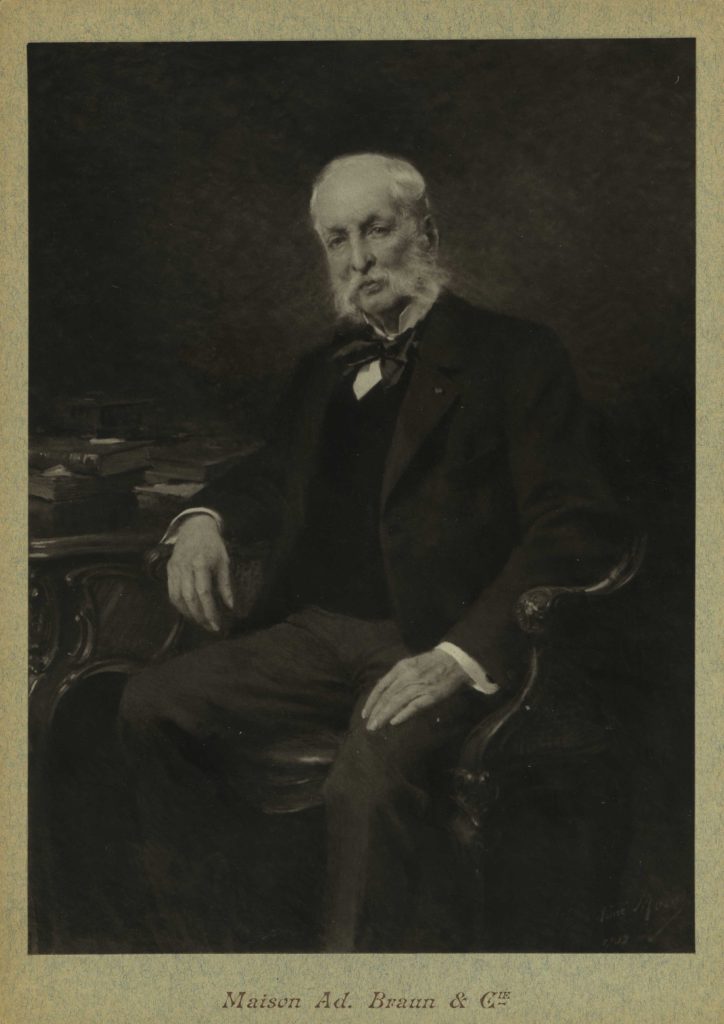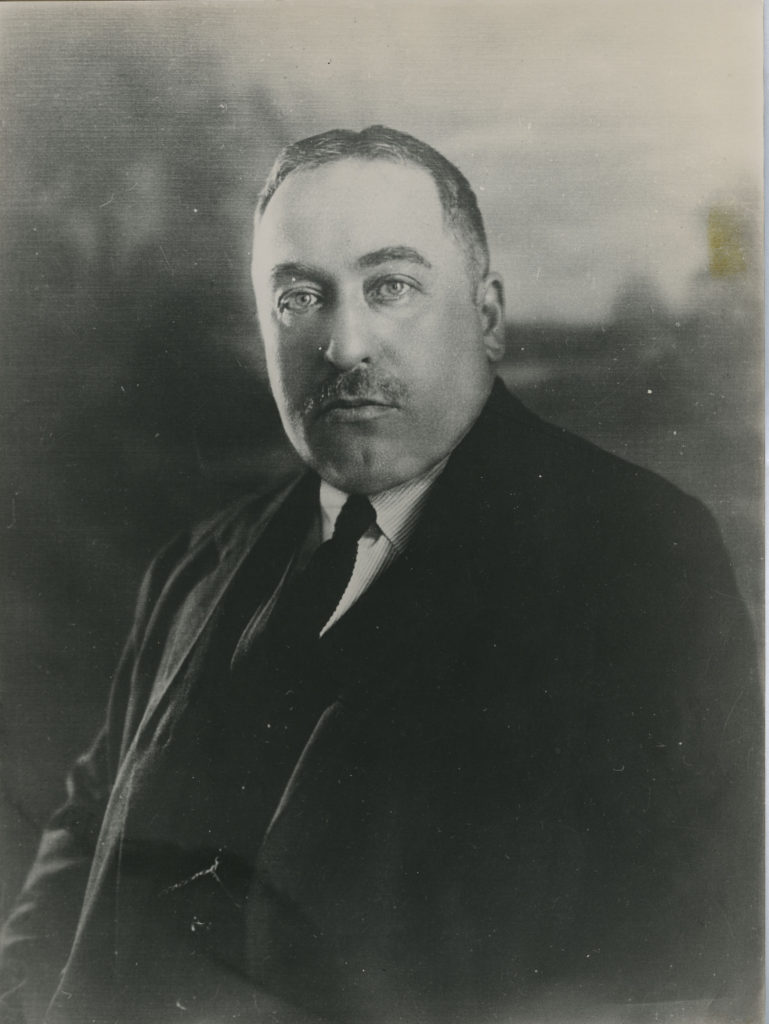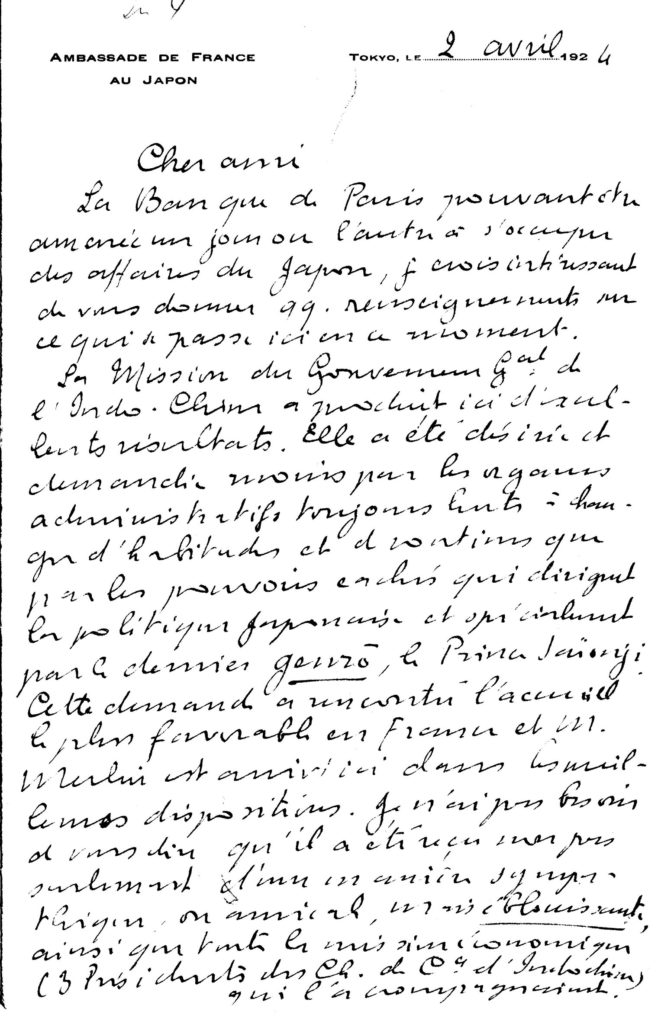How The East Was Won (2/3): Establishment projects aborted by Banque de Paris et des Pays-Bas

Comptoir d’Escompte de Paris opened a branch in Japan in 1867 to support French economic expansion in the Far East before opening branches in France. The Land of the Rising Sun had imperialistic urges in eastern Asia, however, which discouraged and ultimately blocked the aims of Banque de Paris et des Pays-Bas of setting up in the region for nearly half a century, despite the promising economic outlook in Japan. It was only in the 1960s that BNP and Paribas finally established a permanent presence.
Establishment projects aborted by Banque de Paris et des Pays-Bas
Banque de Paris et des Pays-Bas conducted two economic assessment assignments in Japan in the first two decades of the 20th century with broad support from local authorities.
The Franco-Japanese treaty of 1907 provided a formal and normalised framework for relations between the two countries. That same year, Eugène Goüin, president of Banque de Paris et des Pays Bas, commissioned Horace Finaly, then deputy director of the bank, to carry out an exploratory mission in Japan to study the local economic and financial situation and forge any links required to establish a presence . He was accompanied by the president’s grandson, André Goüin, and a Ponts et Chaussées graduate by the name of Lacombe. The mission, which was eagerly awaited in Japan, received extensive press coverage.


With active support from France’s ambassador to Japan, Finaly initially saw enormous potential in the country, describing Japan as an “economic monster” and focusing thinking on financing industrial operations.
But Horace Finaly left Japan in November 1907 followed by André Goüin six months later. Good will and hope arising from the possibility of Franco-Japanese cooperation were not transformed into concrete actions. The tide against business with Japan turned in January 1908 and both Finaly and André Goüin became increasingly sceptical about the feasibility of developing business with the country. Société Générale was to sponsor the establishment of a Franco-Japanese bank in Paris in 1912.
The issue of setting up in Japan was again raised some ten years later. Paul Claudel, French ambassador to Japan from 1921 to 1927, was a firm believer in Franco-Japanese economic and financial cooperation. In a letter dated 2 April 1924 to Horace Finaly (by then director of Banque de Paris et des Pays Bas), Claudel proposed an analysis of the country’s geopolitical and economic situation .

During the inter-war years, Japan asserted itself as the most powerful nation in the Far East and was therefore isolated given the hostile policy of the United Kingdom and the U.S., which prompted attempts to renew pre-war relations with Germany. These were the conditions in which Paul Claudel proposed developing Franco-Japanese relations, “this is the time to offer our services”, he wrote, and attempt to counter German propaganda.
To ensure this rapprochement, Claude believed it was necessary to strengthen economic relations between Indochina and Japan. A mission, described as “dazzling”, had been sent in May 1924 with the governor of Indochina, M. Merlin, to consolidate the trilateral relations between the three countries. Thereafter, Claudel thought it vital to welcome an economic mission accompanied by a “representative” of Banque de Paris et des Pays Bas who would uphold “all our [French] interests”. The aim was to set up a French bank in a country that was “isolated at the other end of a semi-civilized continent lost in the ocean like a Robinson [Crusoe who] cannot do without a foreign correspondent”, and to be at the centre of Franco-Japanese economic relations, in particular in metals.
Although Horace Finaly did read and annotate the letter on 21 July 1924, there was no follow-up, very probably as a result of a negative opinion handed down by the Office national du Commerce extérieur. It was only in the 1960s that BNP and Paribas finally opened representative offices in the Land of the Rising Sun.








